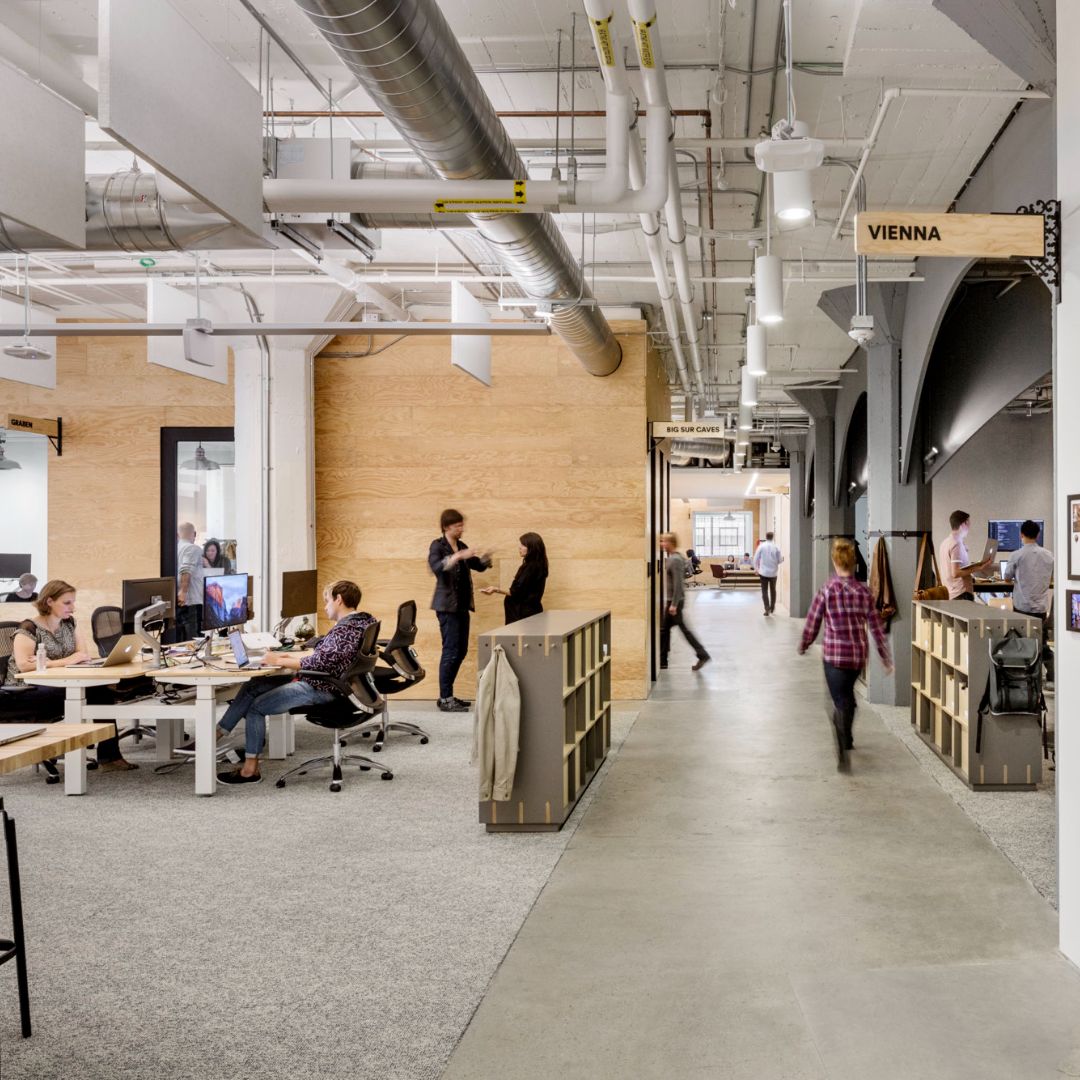Commercial finance
Offering flexible load solutions tailored for investors, entrepreneurs, and SMSFs
Good finance is good for business
It’s less about borrowing money, and more about making an investment in your business success. Whether you’re starting up, sustaining success, or wanting to make the most of new opportunities, the right finance can help fund the growth you’re looking for.
Commercial loans
Navigating commercial property loans can be complex and costly, but working with an experienced commercial finance broker like UFinancial can save you time and money.
UFinancial provides tailored commercial financing solutions for investors, business owners, and SMSF holders, ensuring a smooth and straightforward lending process. With access to a wide range of commercial lenders, we offer both full-doc and low-doc loan options to suit your needs.
Our commercial finance solutions include:
- Purchasing a commercial property as an individual borrower
- Acquiring a commercial property through a trust or company
- Buying a commercial property within an SMSF
- Upgrading or purchasing new equipment for business use
- Renovating or modernising a commercial property
- Fit-out funding for commercial spaces
- Refinancing an existing commercial property loan
With expert guidance and flexible loan options, UFinancial helps you secure the right financing to support your commercial investment goals.
Secure your commercial investment with tailored loan solutions
Investing in commercial property in Australia offers significant opportunities, whether you’re a business owner looking to secure your own premises or an investor expanding your portfolio. However, financing a commercial property differs considerably from residential loans, with a range of lending options to consider. Understanding these differences and working with an experienced commercial finance broker is essential for a successful investment.
Commercial property loans
A commercial property loan allows you to finance the purchase of a commercial asset, with loan terms typically ranging from 10 to 30 years. While a minimum 20% deposit is usually required, higher loan-to-value ratios (LVRs) are available depending on the lender and borrower profile.
Commercial loan solutions are available for:
- Self-Managed Super Funds (SMSFs)
- Businesses
- Medical and health professionals (with up to 100% LVR &no
LMI options available) - Trusts
- Individual borrowers
Purchasing a commercial property can be a lucrative investment, but it’s important to navigate the financing process with expert
guidance. By partnering with a knowledgeable commercial finance broker, you can access the right loan structure, maximise your borrowing potential, and make informed decisions for long-term success.
What type of property is considered commercial?
When applying for a property loan, the lending criteria differ significantly between residential and commercial loans. In many cases, purchasing a commercial property requires a larger deposit compared to a residential property. Due to these varying borrowing requirements, it’s essential to understand what qualifies as a commercial property.
Commercial properties include:
Converted Commercial-Residential Properties
From a valuation standpoint, a property may be classified as commercial if any part of it is used for business purposes. For example, a corner store converted into a residence but retaining a commercial retail façade would be considered a commercial property, subject to higher loan terms such as increased interest rates and larger deposit requirements. Similarly, residential properties with business signage could also be deemed commercial. It’s crucial to consult with a commercial finance broker before making an offer to understand the potential implications. Additionally, zoning regulations can play a role in determining the property’s classification, regardless of its outward appearance.
Office buildings
Office buildings and workspaces, whether small suites or multi-level corporate hubs, fall under commercial property. These spaces are often leased to businesses or professionals, providing long-term investment opportunities.
Retail buildings
Retail spaces include shopping centers, storefronts, and other customer-facing businesses. These properties generate rental income from retailers and often benefit from high foot traffic and prime locations.
Industrial buildings
Warehouses, factories, and distribution centers are classified as industrial properties. These spaces are designed for manufacturing, logistics, and storage, offering strong investment potential due to high demand.
Medical buildings
Commercial properties in the medical sector include private clinics, dental offices, and specialised healthcare facilities. These spaces are essential for medical professionals and provide stable, long-term leasing opportunities.
Mixed-use buildings
Mixed-use properties combine commercial and residential spaces, such as apartment buildings with ground-floor retail or office spaces. These properties provide diverse revenue streams and increased flexibility for investors.
Agricultural properties
These are commercial properties used for agricultural activities, such as farms, ranches, and vineyards.
Land
Commercial land refers to undeveloped or developed land that is intended for commercial use, such as shopping centres, office parks, and warehousing or industrial sites.
Commercial loans vs. residential loans
Commercial loans differ from residential loans in several key ways. Primarily, commercial loans are considered riskier for lenders, as there are fewer buyers interested in purchasing commercial properties. This can lead to longer sales timelines or reduced property values in the event of a default. Consequently, commercial loans tend to come with higher interest rates and stricter eligibility criteria.
When it comes to investment property loans, the underwriting process varies between commercial and residential properties. For residential investment loans, lenders typically assess your credit score, debt-toincome ratio, and employment history. In contrast, commercial loan underwriters will also evaluate the property’s potential income, location, zoning, and market demand.
Additionally, property valuations for commercial properties are more costly, with borrowers typically responsible for the valuation fee. In comparison, residential property valuations under $2,500,000 are generally covered by the lender.
Incorporating commercial properties into a diverse property portfolio can offer significant benefits.
If you’re looking to expand your property portfolio, a commercial loan can be an effective strategy to help you achieve your goals. By choosing a commercial property loan, you can diversify your investments and unlock new opportunities.
Commercial properties often come with longer lease terms, providing greater rental stability and reduced ongoing costs. We offer a range of flexible commercial lending options to support forward-thinking individuals in reaching their investment objectives.
Incorporating commercial properties into a diverse property portfolio can offer significant benefits.
Commercial Finance for Health and Medical Professionals UFinancial collaborates with specialised medical lenders to offer favourable lending terms for individuals and businesses within the healthcare and medical sectors.
We can provide financing for:
Loan-to-Value Ratio (LVR) Limits for Medical Practices:
Loan-to-Value Ratio Limits for Medical Professionals’ Home Loans or Investment Lending:
These tailored options help healthcare professionals secure the financing they need to grow their practices and invest in their futures.
When buying a commercial property, it’s essential to conduct thorough research and consider several key factors.
Location plays a vital role, as it impacts tenant appeal and rental rates, so aim for properties in desirable areas with good transport links, parking, amenities, and a strong local economy.
The size and layout of the building must align with your needs and those of potential tenants, while the property’s condition should be assessed through a detailed inspection to identify any required repairs or upgrades, particularly for systems like roofing, plumbing, and electrical.
Understanding commercial financing is crucial, so consult an experienced mortgage broker to evaluate your budget and loan approval process, ensuring that the expected income can cover mortgage repayments.
Additionally, review zoning laws and local regulations to ensure the property is zoned for your intended use and complies with building codes.
Finally, conduct a market analysis to assess the demand for office space in the area, considering factors like rental rates, resale value, vacancy rates, and competition.
Commercial loans news
How UFinancial can help U.
Navigating the journey to securing your commercial property can seem daunting, but with UFinancial, it doesn’t have to be. We specialise in guiding investors, business owners, and SMSFs through the complexities of commercial property financing, making the process smooth and stress-free.
Expert Guidance You Can Trust
With a team of over 60 professionals and dedicated specialists for every stage of the commercial mortgage process, we’re here to simplify the journey. From understanding the different types of commercial property loans to managing the paperwork, our experts provide tailored advice suited to your unique investment goals and needs.
Access to the right commercial loan for you
Choosing the right commercial loan can be overwhelming, but we make it simple. UFinancial works with a broad network of commercial lenders, comparing numerous loan products to find the one that best suits your business or investment objectives. Whether you’re looking for the most competitive interest rate, flexible repayment terms, or tailored loan features, we’ve got you covered.
Support beyond the loan
We understand that securing a commercial property is about more than just obtaining financing—it’s about making smart, strategic decisions for the future. That’s why we offer a complete suite of financial services, including business accounting and financial planning, to ensure you have the support you need to manage your commercial finances with confidence.
Free, tailored support
Our services come at no cost to you. UFinancial is paid by lenders, not by you, allowing you to take advantage of our expert knowledge and experience without any additional fees.
We're With you U nationwide
No matter where you are across Australia, UFinancial is here to assist. Our nationwide team is dedicated to supporting you
throughout your commercial property journey, providing you with the resources, advice, and guidance needed to secure your
next investment.
Securing commercial property financing is a major milestone, but you don’t have to navigate it alone. Let UFinancial simplify the
process so you can focus on what matters most—growing your business and building your property portfolio.
Meet Angus Macdonald, UFinancial’s Commercial Property broker
Frequently asked questions
We get asked a variety of questions, and here are some linksto articles that address the ones that frequently pop up.

Are interest rates higher for commercial loans?
Typically, interest rates for commercial loans are higher than those for standard residential home loans. However, advertised interest rates from lenders are often negotiable, which is why mortgage brokers play a crucial role in securing the lowest possible rate for property owners.

What types of properties qualify for a commercial loan?
Commercial loans are available for a variety of properties, including office buildings, retail shops, warehouses, industrial properties, and properties held in a Self-Managed Super Fund (SMSF). Some loans may also apply to mixed-use properties with both residential and commercial aspects.

What is the difference between a commercial loan and a residential loan?
The main differences include loan terms, interest rates, and approval criteria. Commercial loans generally have higher interest rates and stricter requirements than residential loans, as commercial properties are considered riskier investments.

What factors do lenders consider when assessing a commercial loan application?
moreLenders evaluate several factors, including the property’s potential rental income, location, market demand, zoning, your financial situation, and the Loan-to-Value Ratio(LVR).











